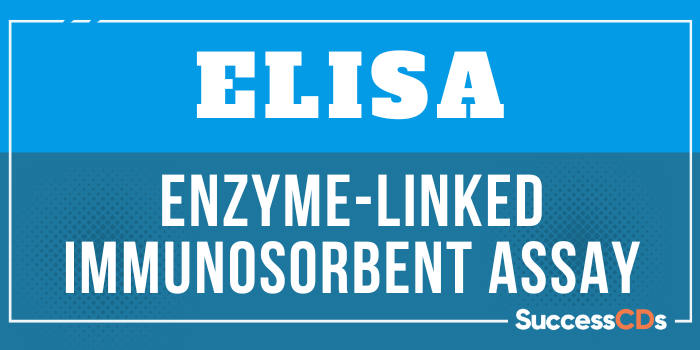
The Full form of ELISA is Enzyme-Linked Immunosorbent Assay. ELISA is a rapid immunochemical test that involves an enzyme used for measuring a wide variety of tests of body fluids. ELISA tests detect substances that have antigenic properties, primarily proteins rather than small molecules and ions, such as glucose and potassium. Some of these substances include hormones, antibodies and bacterial antigens. ELISA tests are generally specific and highly sensitive, and they compare favorably with Radioimmune Assay (RIA) tests. They have the added advantage of not requiring the use of radioisotopes or radiation-counting apparatus. This test can be used to determine if a person have antibodies related to certain infectious conditions. Antibodies are proteins that your body produces in response to antigens (harmful substances). An ELISA test may be used to diagnose HIV, which causes AIDS, lyme disease, pernicious anemia, rocky Mountain spotted fever, rotavirus, squamous cell carcinoma, syphilis, toxoplasmosis, varicella-zoster virus, which causes chickenpox and shingles and Zika virus. There are very few risks associated with ELISA test. These include infection, feeling faint, bruising and bleeding more than usual. Make sure to tell your doctor before the test if bruise easily, you’ve had trouble giving blood in the past, or have a bleeding disorder such as hemophilia.